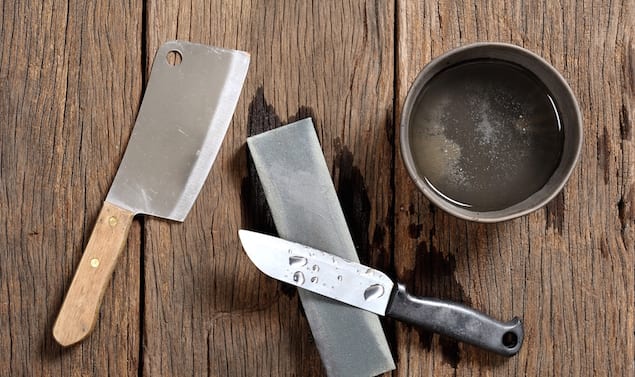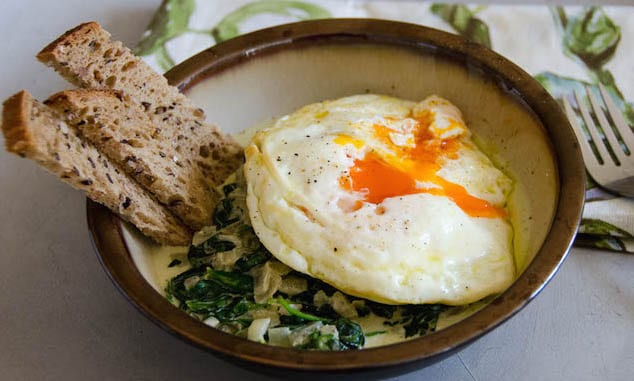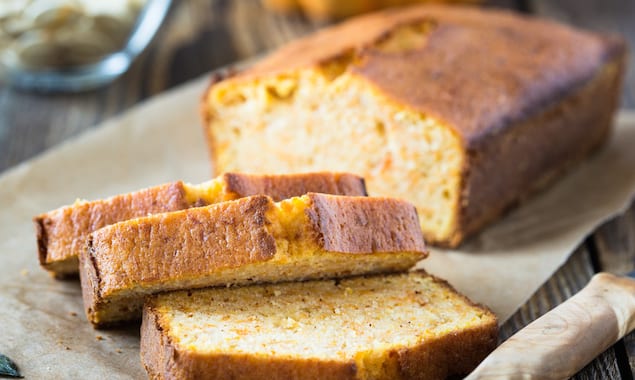Michelle Tchea is a 4-time bestselling author. Her books include,…
Learn all about knife care from Shun’s knife expert, Matt Matsushima.
By Michelle Tchea
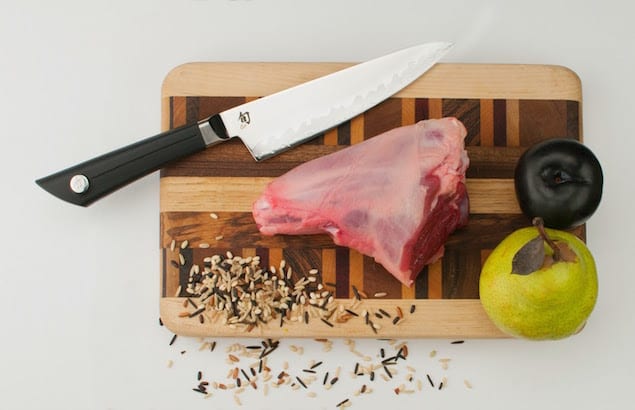 Image: Shun Cutlery
Image: Shun Cutlery
After discovering rust on my new knife and scratching my head, staring at the glass cabinet full of knives at my local cookery shop, I decided to get back to basics.
To avoid losing a finger (ouch), I’ve gotten in touch with knife expert Matt Matsushima, from Shun Cutlery to help with all my (and hopefully your) knife questions.
One important thing to be sure of is to not use citrus-based detergents when you are washing your knives.
Home cooks these days are interested in cooking from scratch – from de-boning their own chicken, to making artwork out of vegetables. Is there a knife for every technique in the kitchen?
Matt:
How do you keep your home knife sharp?
Matt:Using a honing steel on a regular basis. I try to hone my knives almost every time I use them. Cutting surfaces (cutting boards) make a big difference, use the right type of softer wood cutting board, such as Hinoki wood.
How do we keep our knives from damage and the ‘wear and tear’ work in the kitchen?
Matt:Number one is the cutting surface, glass / granite / stone cutting surfaces will destroy a cutting edge, you might as well be cutting on your driveway. [We] recommend the ultimate cutting board surface; Hinoki wood. Also hand washing and drying the knives is important, no dishwasher. Honing a knife keeps it in top performance condition. Finally, proper storage is important, don’t store your knives loose in a drawer.
Should I sharpen my knife professionally or can I do it at home?
Matt:1) Many professional sharpeners use a dry sharpening system which has the potential temper the hard cutting edge resulting in poor edge retention. We recommend if professional sharpening is desired, the knives be returned to the manufacture for proper sharpening.
2) Sharpening at home is possible however this process takes practice and skill to learn (sometimes resulting in damaging the knife in the learning process) if one is up for the challenge we recommend using the appropriate Japanese whetstone for the level of sharpening required. Shun offers complementary lifetime sharpening with the same process that is used at our factories.
How do I keep Shun knives from rusting?
Matt:Number one is drying the knives after hand washing. Do not soak the knives in water to keep them in the optimal condition. Also, many citrus based soaps can have a corrosive effect on premium cutlery and should be avoided.
So what is the procedure I should follow each time I use my knife ?
Matt:Hand wash and immediately dry after use. Honing the knife before storing/or use will keep the knives in top condition
How should I store or keep unused knives?
Matt: We recommend a wooden/bamboo knife block or in drawer storage knife tray. Use surfaces covered in wood or other soft material (if it is magnetic or a magnetic bar), metal is not recommended as it can dent or damage a knife.
There are so many knives to choose from – what knife do you recommend for everyday cooking, chopping veggies to cutting fruit?
Matt:The best knife shape and size, are what the cook is comfortable with. For standard home cooking a Chef or Santoku works great. For everyday simple tasks, a 6” utility might be the ticket. Asian shapes (Asian Cook, Honesuki, Kiritsuke) are great shapes for someone trying to expand a collection. Don’t forget about the “weird” knifes, like a Ultimate Utility 6”, in my opinion the best knife every invented for making a sandwich.
What’s the proper way to hold a knife for a truly novice cook?
Matt:One that they don’t cut themselves, second to that is the standard pinch grip.
What if I only have a budget for one good knife – what would you recommend?
Matt: Chef Knife or Santoku, 6” to 8” range
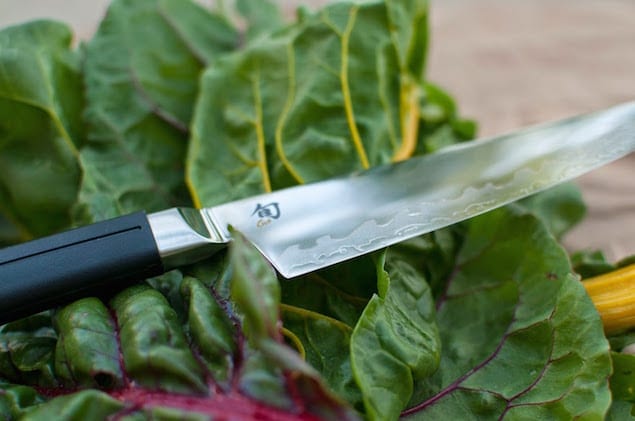 Image: Shun Cutlery
Image: Shun Cutlery
Michelle Tchea is a 4-time bestselling author. Her books include, Building a Perfect Meal, My Little SoHo Kitchen, Signature Dishes (Australia's Best) and Chefs Collective. Her work can be found in other leading luxury travel and food magazines including Travel+Leisure Asia, SMILE, NUVO Magazine and The Telegraph

